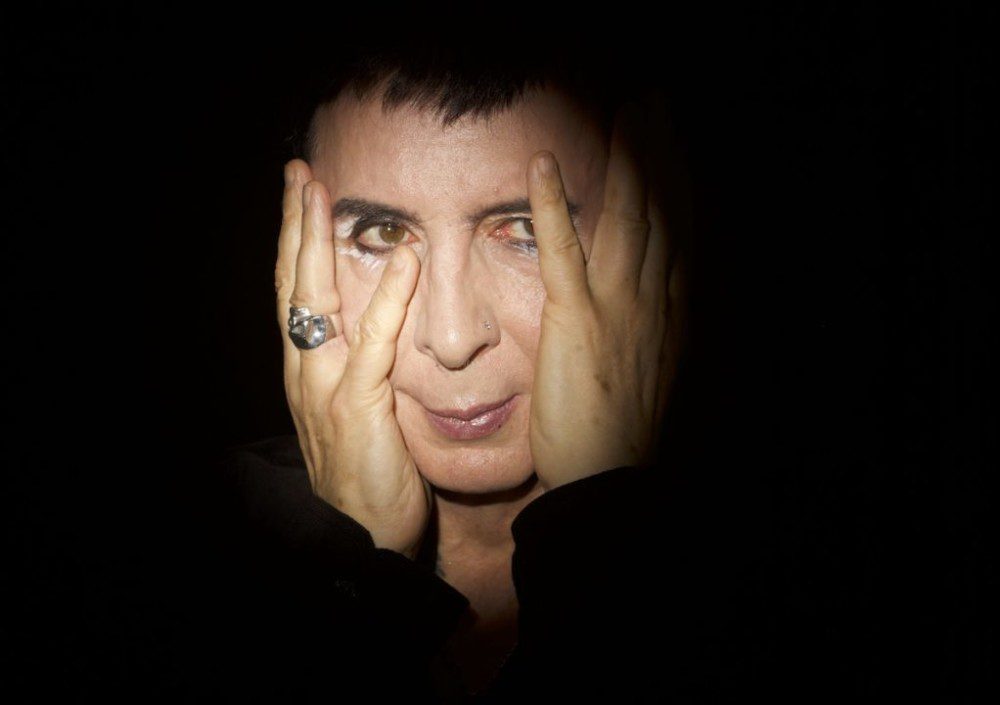
Marc Almond tells Classic Pop how his move from London to Portugal has reignited his passion for music and led to the new covers album, I’m Not Anyone…
Although Marc Almond and Dave Ball grew up in Southport and Blackpool respectively before meeting at Leeds Polytechnic in 1977, Soft Cell are arguably a London band: both men moved to the capital as soon as they could and remained there for decades after wards.
While their debut album Non-Stop Erotic Cabaret isn’t exactly a London concept record, it captures the sound of pre-gentrification Soho better than anyone else. Seamy songs like Youth, Sex Dwarf and Seedy Films drip with the danger and illicit sex of the city in the 1980s.
For the remainder of Soft Cell’s first incarnation, and his even murkier 80s alter-ego in Marc And The Mambas, Almond lived opposite infamous Soho strip club Raymond Revuebar. For Soft Cell, success only meant finding nicer homes in London, rather than suburban retreats or country mansions. Indeed, their second split, after Cruelty Without Beauty in the early Noughties, was precipitated by a row after bumping into each other in the streets of central London.
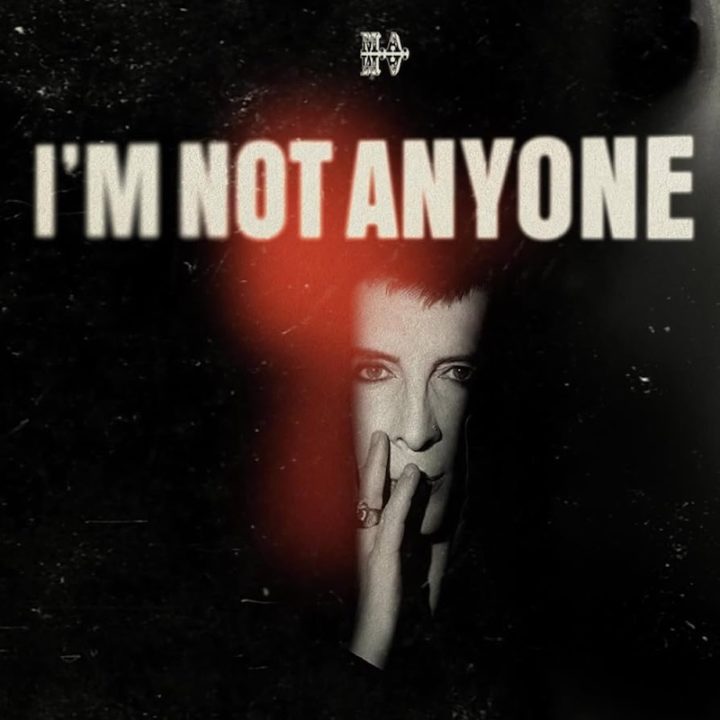
Wave Goodbye
Classic Pop meets Almond to discuss his adventurous new covers album I’m Not Anyone at Soho Hotel. It’s a five-star hangout that’s exactly as luxurious as anyone would imagine successful 80s pop stars would conduct all their inter views, but it’s also just two minutes’ walk from the site of Raymond Revuebar. For gentrification in action, have a look at the prices of Soho Hotel’s cocktail menu.
So far, so London. But Marc Almond lives nowhere near here anymore. Shortly after recovering from Covid, which he contracted at the start of lockdown, the seemingly lifetime Londoner moved to Portugal.
“When I came out of Covid, I felt so drained and exhausted,” begins Marc of his European adventure. “I felt aged, and I just felt ill. Of course, so many people felt that way who have been through Covid, but it maybe didn’t hit me until later. I realised that I was mentally and physically exhausted. And I don’t love London like I used to.”
While Marc has always been attentive in person, keen to ensure any interviewer has all the drinks and hotel nibbles he can offer, he’s never looked happier than he does now – he really does seem revived by the Portuguese countryside. By contrast, the cleaned-up, pricier London just isn’t the city to offer the adventure it did in 1981. “I’m sure I’ll fall in love with London again,” considers Almond. “Right now, though, it feels like an ex-lover. It’s going through a weird patch.”
London You Were My Lover
Marc’s feelings toward the capital were made clear in London You Were My Lover from the singer’s joint album in 2018 with Jools Holland, A Lovely Life To Live: “I’m willing to give you another chance/ If you dress just like you did before.” “That’s how I feel about London and the UK in general at the moment,” laughs Almond. “London needs to get its party dress on again. I needed an adventure. I’m getting older and I thought: ‘This can’t be it, can it?’”
Post-Brexit, Portugal was the only EU country to offer an escape, with a special visa on offer for British artists and musicians to live there. It’s since been withdrawn, after pressure from the rest of the EU, as Marc admits: “I got to Portugal just in time. The only other country to offer a similar deal was Dubai.” He looks faintly appalled. “I couldn’t think of anything worse than Dubai. I don’t like the heat much. It’s hard enough in Portugal, but Dubai is literally a cultural desert, whereas Portugal interested me. I like fado music, so that was a plus straight away.”
After so long surrounded by people in London, Almond’s new home is a solitary contrast, as he reveals: “I bought a plot of unloved rural land, with an unloved wreck of a house. I wanted a project. In Portugal I can plant orange and lemon trees, then retreat there when the apocalypse comes. I love getting back to nature, and my new place is in the middle of nowhere, with solar panels.”
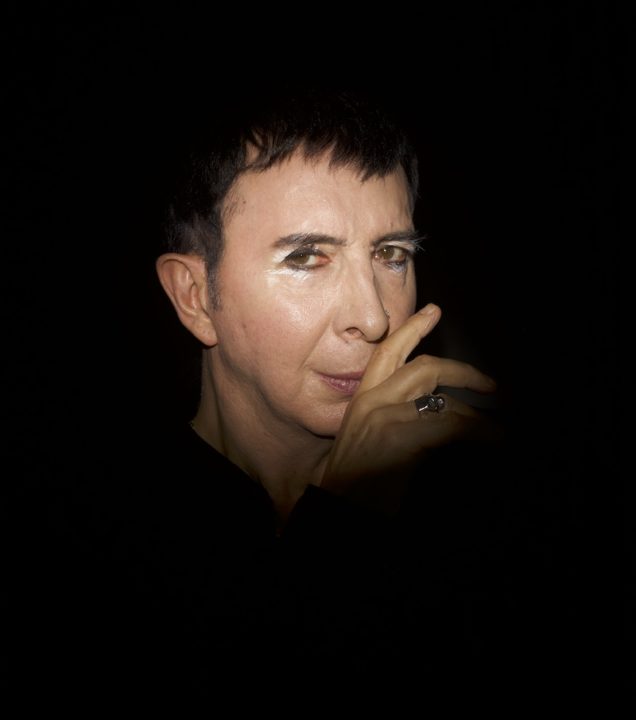
Cultural Animal
A decade ago, Marc made his love of nature explicit on the environmentally themed The Tyburn Tree, his album with composer John Harle. He also spoke to Classic Pop in 2019 about studying to be a druid. “Exactly,” he grins, when reminded of his studies. “I’m living a rural life as a pagan druid. It’s good for my soul, as well as somewhere I can be when the world goes to hell.”
The pagan life doesn’t mean Almond has entirely abandoned his old pursuits. “I do get homesick,” he admits. “I’m a cultural animal. My itinerary in London for the 10 days I’m back here is packed, seeing this show and that exhibition. It’s a trip full of stuff. When I get back to Portugal, I will probably just plant trees, then sit in front of YouTube going down rabbit holes.”
Emotional Connection
Those YouTube rabbit holes, coupled with the tranquillity of Portugal, helped inspire Marc to revisit his record collection for his first covers set since 2017’s Shadows And Reflections. “My rural life in Portugal is why this album has so many elemental references,” he ponders. “I wanted to get back to a spiritual feeling in my music. It sounds corny to say it, but there’s a spirituality to this album.”
Having been so busy since Soft Cell unexpectedly made a new album with *Happiness Not Included returning them to the Top 10 two years ago, Almond was exhausted with music, too. “I have to reconnect with music from time to time,” he smiles. “I had time to do that at home, and my favourite way to reconnect is to rediscover songs I liked from years ago. When I am getting back into them, watching their old videos on YouTube sends me down rabbit holes of info about other songs to explore. This time, I wanted songs that hit me emotionally.”
The title track, originally a duet by Paul Anka with Sammy Davis Jr written in 1973, was the first song to be chosen. “I love the title of the song – and my album as a result – because it can mean ‘I’m a nobody’ or ‘I’m not just anyone’,” smiles Marc. “It’s not until the second line, ‘I’m not just anyone’, that you get your answer. It’s a great title and such a big song.”
Anyone’s Game
Almond had intended to recreate the original’s duet feel with his regular backing singer, Brian Chambers, but album producer Mike Stevens pushed Marc to record it solo instead. “I thought I could hide behind Brian,” he confesses. “Mike told me: ‘There’s no hiding, this is one to do on your own’ and he was absolutely right. I’m Not Anyone is a song that very much says how I feel. I find it hard to get to the end of it without feeling choked up. It’s about defiance, and I’ve always been defiant.”
Since emerging into the mainstream with Tainted Love 43 years ago, Almond has always presented his music the way he wants, whether wearing riotously gay costumes on Top Of The Pops, veering off into music that’s not so much underground as subterranean with Genesis P-Orridge, Coil and assorted other avant-garde experimentalists, or happily chatting away to Gloria Hunniford or Lorraine Kelly. Marc is surely our only pop star equally at home with Psychic TV or daytime TV.
“I have a way of seeing things and how to do them,” he shrugs. “No one can tell me what to do or try to manipulate me. At times, that’s got me a reputation: ‘Marc Almond is difficult.’ People who work with me know I’m not difficult. But you can’t manufacture me, and it’s one reason why I’m Not Anyone is such an important song for me.”
Adventures In Paradise
The variety of Marc’s music is testament to how he’s happy to get involved in so many different spheres, rather than having any rigid formula he insists on being followed. But there are limits. “I like everything I do to be an adventure,” he states. “That’s why I do lots of different things. Whether it’s singing Brecht & Weill songs or working with some esoteric artist, so long as it fits in my world somewhere then I’ll do it. If I can get inside a project, I’ll do it. I never think: ‘This isn’t commercial enough.’ I never worry if it’ll make me any money.”
Asked if he’s ever thought about the financial implications for his career, Almond laughs delightedly, as if asked if he’s ever considered being a cage fighter. “If I was to think in those terms, I’d take one of the huge offers I get from The Masked Singer.” Oh, really? The Saturday night show has been one of ITV’s biggest entertainment hits since Britain’s Got Talent, with Gabrielle and Kaiser Chiefs’ Ricky Wilson among its previous singers. But it’s not one for Almond. “The sums are life-changing: very, very nice offers,” he shares. “It’s a s-load of money.”
That’s Entertainment
He really does self-censor saying “shit”, which is adorable for anyone who’s heard Marc And The Mambas’ Torment And Toreros album. “It’s just not for me. I’m not rich, but my records have let me be able to live the life I want to live, so I don’t need to do The Masked Singer. I’m not putting the show down. It’s always flattering to be asked, I’m just not very good at being that kind of entertainer.”
It’s a demonstration of how Marc is happy to do almost anything, so long as it’s on his terms. “I’m not disparaging of how people view me in different ways,” he insists. “I can be entertaining in my own world, in my own way – whatever that is. But I’m not a goodtime, jazz hands entertainer.” Almond offers his best showtunes jazz hands impression. Readers, it is endearingly rubbish.
A Song Is A Song
Something else Marc doesn’t necessarily think he’s expert at is writing songs. I’m Not Anyone is his eighth covers album since he branched out into interpreting others’ material on Jacques Brel tribute record Jacques in 1989. He can obviously tackle a variety of others’ work, but is disarmingly frank about his reasons for doing so.
“I’ve never thought of myself as a songwriter,” says Almond, as CP looks at him like he’s grown a second head. “Of course I’ve written loads of songs, but I’ve never looked at myself in that way. I’ve tried writing songs for other people. Every time I’ve tried, it’s been a disaster. I can only write songs that work for me.”
Of course, both of Marc’s No.1 singles, Tainted Love and Something’s Gotten Hold Of My Heart, were covers. Does it matter that none of his own songs have reached the top? “Not at all,” he responds convincingly. “I’ve been lucky to have had any No.1 singles, let alone two. The fact that they’re covers, who cares? A song is a song.” He laughs at the memory of Something’s Gotten Hold Of My Heart’s unexpected success in 1988: “I rang my marketing manager and told him: ‘You have to stop letting this record be at No.1. I can’t go out! Can you do something so that it drops down the chart?’” Another laugh. “I’m aware of how that sounds – an artist requesting his record company to drop down the charts, just so he can live a life.”
Covered In Glory
Of the artists to cover Almond’s songs, David Gray’s version of Say Hello Wave Goodbye is the most successful. Despite being the fifth single from his multi-platinum 1998 album White Ladder, it still reached the Top 30. “Even though it’s just David and an acoustic guitar, his version is completely epic,” raves Marc. “He somehow turned it into a nine-minute anthem. I was very grateful to David, and I’ve happily sung it onstage with him a few times. But my favourite version of Say Hello Wave Goodbye is by a-ha. I love their music and Morten Harket is such a fantastic singer. A-ha only did their version for a radio session, but I was thrilled they did it at all.”
Asked which other of his songs he’d like covered, Marc immediately plumps for Torch – “Probably my favourite Soft Cell single” – and Brilliant Creatures, from 1996’s recently reissued Fantastic Star: “That could make for a really nice version by someone.”
Low Profile
If Almond is uncertain of his songwriting talents, he’s more confident about his singing ability, but in the studio he needs a producer he can feel comfortable with. Marc’s near-fatal motorcycle crash 20 years ago has left him partially deaf in his right ear. “My eardrum was pierced in the accident,” recalls Almond. “It healed, but it’s never been the same again. I can’t hear high sounds anymore, only bass sounds, so onstage everything has to be bass sounds.
“In the studio, there’s nothing worse than when someone can’t get the mics to sound right. If I have to stop because I can’t hear myself or I can’t get the right pitch, I just can’t do it. That’s stressful, and it means there are only a certain few people that I like to work with.”
Harmony And Me
As well as Mike Stevens, Marc names Trevor Horn and recent solo producer Chris Braide as his favourites. Mike, who has also worked with Take That and Annie Lennox, is good at making him feel relaxed. “Mike pushes me, but he doesn’t bully or intimidate me,” says Almond. “I like someone I can have a laugh with. We’ll spend half the session gossiping and talking about what records we like, then it’s: ‘Oh, we’d better do some music.’”
Their only regular difference of opinion is that Mike sometimes attempts to get Marc to do vocal harmonies: “I try to do harmonies, but I just can’t figure them out. I’m useless at harmonies. I tried doing them in early Soft Cell and they’re the worst harmonies in the world, all over the place. I listen back to them now and think: ‘What was I doing?’ That was the sound of the time, I guess.”
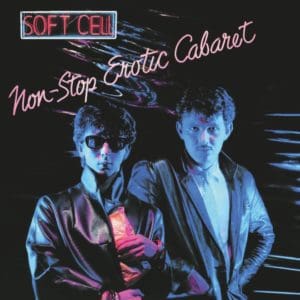
Collectors Market
Soft Cell’s past was recently expanded with last year’s deluxe 6CD boxset of Non-Stop Erotic Cabaret. Further boxsets of The Art Of Falling Apart and This Last Night In Sodom have been teased on the duo’s social media – but Almond won’t be getting involved directly. He understands that fans love them but, again, it’s just not for Marc. “I don’t get involved in that side,” he admits. “I know the fans want to hear all our demos that have been under the bed from 40 years ago. That’s fine, but I don’t listen to them.
“Going back to listen to those early versions with a half-finished vocal would do my head in. When someone says there’s a boxset with five different versions of Say Hello Wave Goodbye, it drives me crazy. I totally understand collectors want that, but it’s not for me.”
Despite Almond’s reticence over his own catalogue, he cheerfully admits that he’s a hypocrite over the collecting mindset as he reveals: “Oh, I’ll buy anything Marc Bolan ever did. Me and Chris Braide are both obsessive about Marc. I’ll listen to him strumming away in the studio, stopping halfway through to ask: ‘Can I have a cup of tea, please?’ Chris and I buy all the Bolan boxsets, and we’ve bought T-Rex singles we already own just for a different cover. I know Soft Cell fans are like that, too.”
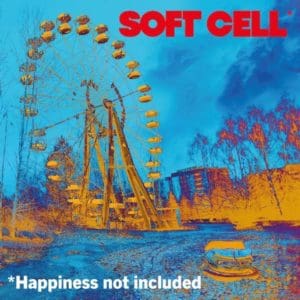
Non-Stop Operation
Following the success of *Happiness Not Included, Almond is much cheerier about Soft Cell’s current status: “That album kept the spirit of Soft Cell alive and was us being true to ourselves. It was a very Soft Cell record – unlike Cruelty Without Beauty, which never really felt like a Soft Cell album.”
The concern over Soft Cell’s future is Dave Ball’s health. The keyboardist is confined to a wheelchair after breaking his back in an accident at home just before *Happiness Not Included was released. The album’s co-producer, Philip Larsen, deputises for Ball at live shows when the keyboardist is unable to travel.
“Dave is extremely ill,” frets Marc. “He can’t always be part of our live show. We’re only doing one UK show this year, at Blenheim Palace on 14 June, and as it stands Dave will be there. I feel I can do Soft Cell’s music live without Dave. Very few bands now, especially from the 80s, have all their original members. It’s become just a brand name for them. But I do worry people will be so disappointed if Dave isn’t there. Most of the time, I think they’re not, as it’s a very good show visually, and Philip is a good stand-in.”
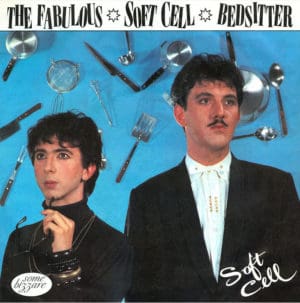
Soft Return
A new LP is a different matter. Marc is reluctant to completely commit himself to saying there will definitely be a sixth Soft Cell album, but he confirms: “There are whisperings about doing another one. But a new album would have to go in a completely different direction.”
Considering the three 1980s Soft Cell albums are totally separate from each other, that shouldn’t be a problem. Marc’s face lights up when this is put to him. “I absolutely agree with that,” he beams. “So long as Dave is heavily involved, then whatever we do will be Soft Cell. Dave is at the heart of Soft Cell, and I’ll only do Soft Cell if Dave is involved in a major way. If Dave isn’t involved in our music, it’s not Soft Cell.”
There’s an intriguing clue as to what could be next when Almond is asked what a new LP could sound like. “You’re right that those first three records give us licence to take Soft Cell somewhere else,” Marc reflects. “We’ve twice gone 17 years without doing an album. With those big gaps, you are conscious of not letting the fans down when you return, while also not being a parody of yourself – and I know the fans always want more Bedsitter or Tainted Love.
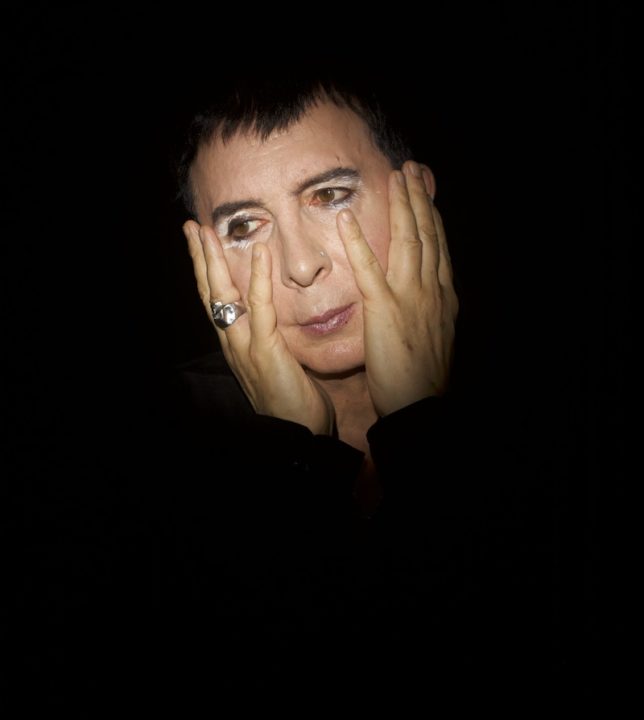
Soul Provider
“But Soft Cell originally came from Black music: Tainted Love, obviously, while Memorabilia was based on a James Brown riff. We loved Northern Soul and Motown, and I’d like to do something that’s more obviously in that world. I’d maybe like to work with an R&B producer, someone who has an understanding of that heritage. That would be something interesting to work into Soft Cell.”
Quite when Almond could find the time for Soft Cell 6 is another matter. He hints at a couple of projects he can’t yet talk about, while confirming he wants to make another solo album of new songs with Chris Braide, stating: “When I do a record like I’m Not Anyone, it inspires me to start writing again. I’ve written lots of various bits of lyrics. I’m sure there’ll be another album with Chris, and I love collaborating, as that takes me out of my bubble. I can get lost in my own universe – I need to get out of that.”
Showstopper!
Marc semi-jokes that he’d love to have a cameo in a musical – “I’d like to do a show in a few years where I can hobble on, do one show-stealing song then hobble off home again” – but ultimately he hopes to emulate one of his heroes, Charles Aznavour, whose songs What Makes A Man and I Have Lived are among Almond’s covers.
“Charles Aznavour was still performing when he was 93,” smiles Marc. “I have an image of seeing him onstage, looking at 10 different teleprompters, so he could sing in Spanish, English, French, Armenian… He’d hobble on but, within 10 minutes, he looked young. That’s what music did to him. I’d love to retreat into the countryside, coming out to make the occasional appearance in half-shadow before giving up again. If I can be onstage at 93, the old age melting away once I start singing… wouldn’t that be great?”
For more on Marc Almond click here
Read our I’m Not Anyone review
The post Marc Almond – I’m Not Anyone interview appeared first on Classic Pop Magazine.
